ywca yeovil war workers' club
ywca yeovil war workers' club
Vicarage Street
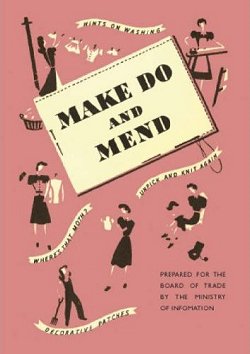 During
the Second World
War the Young
Women's
Christian
Association
(YWCA) was one
of many
voluntary
organisations
that worked
relentlessly for
the war effort.
The women of the
YWCA worked
to construct
support systems
for their
neighbours and
refugees, often
with exceedingly
limited
resources. In Yeovil the
YWCA established
the Yeovil War
Workers' Club
which was housed
in the premises
of Neal &
Williams Ltd in
Vicarage Street.
During
the Second World
War the Young
Women's
Christian
Association
(YWCA) was one
of many
voluntary
organisations
that worked
relentlessly for
the war effort.
The women of the
YWCA worked
to construct
support systems
for their
neighbours and
refugees, often
with exceedingly
limited
resources. In Yeovil the
YWCA established
the Yeovil War
Workers' Club
which was housed
in the premises
of Neal &
Williams Ltd in
Vicarage Street.
As seen in the photographs below the club provided a canteen and a laundry, as well as rest and relaxation facilities for Yeovil's war workers. Instructional classes were run on a voluntary basis such as the "Make Do & Mend" class illustrated below.
"Make Do and Mend" came about when clothes rationing was introduced during the Second World War. The Ministry of Information published a pamphlet encouraging people to do whatever they could to extend the life of their clothes, from darning socks to washing nylons more carefully. This attitude went on to apply to everything and although they didn’t use the term, reduce, reuse, recycle became the ethos of the times.
gallery
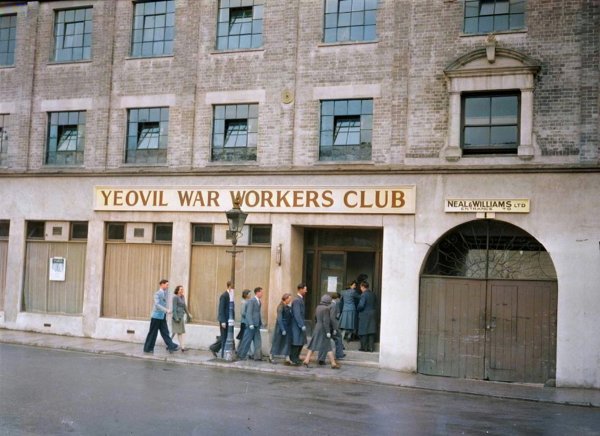
In a colourised photograph, a group of men and women arrive at the YWCA Yeovil War Workers' Club in 1944. The club was housed in premises in Vicarage Street, occupied by ironmongers and builders' merchants Neal & Williams Ltd, whose sign is seen above the arched doorway.
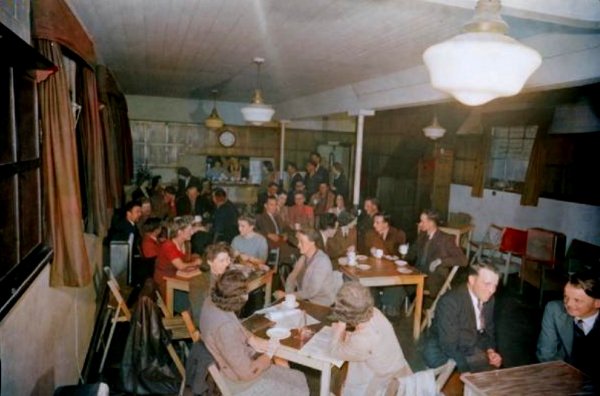
A colourised view of the busy canteen at the YWCA Yeovil War Workers' Club in Yeovil in 1944. According to the original caption, prices were very reasonable, with tea costing 2d, coffee 3d and hot snacks 6d. Groups chat at tables in the foreground, whilst in the background men and women queue at the counter to buy refreshments.
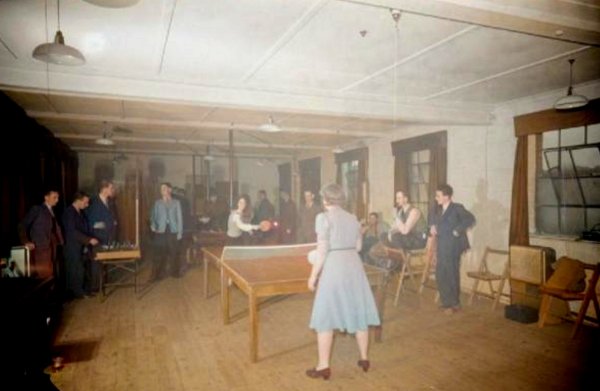
A colourised photograph of the 1940s, showing two female war workers enjoying a game of table tennis at the YWCA Yeovil War Workers' Club in Vicarage Street, whilst several male members of the club watch them as they play.
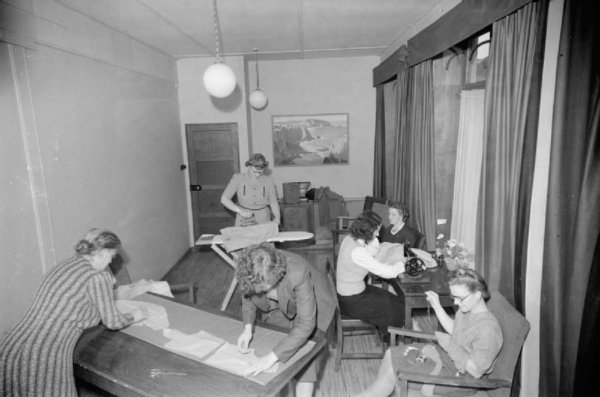
A scene in a "Make Do and Mend" class at the YWCA Yeovil War Workers' Club in Vicarage Street during 1944. Amongst the group are Mrs Norman, who worked in the library and ran the class as a voluntary war job; Joan Keith, a draughtswoman at Westlands; Eileen Hampshere; Margaret Yeoman and Mrs Iris Connor, who made gloves for RAF pilots. Two of the women are pinning a paper pattern to some fabric, another is ironing, and a third is darning socks by hand.
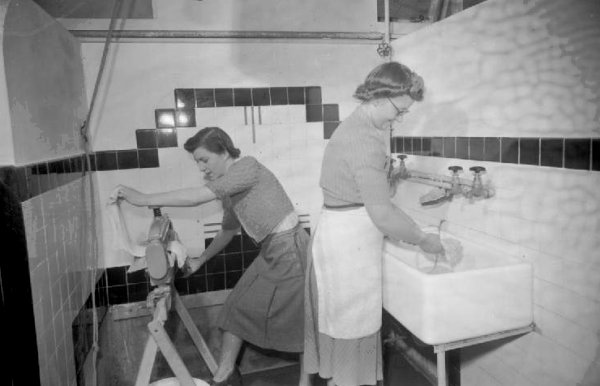
Elsie Richards (left) and Margaret Yeoman (right) wash their clothes in the laundry provided at the YWCA Yeovil War Workers' Club in Yeovil in 1944. Both women worked at Westlands. Elsie is wringing her clothes through the mangle and Margaret is washing her items in the sink.
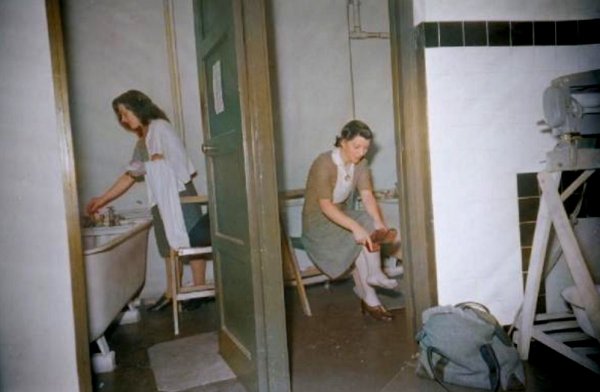
Washing and bathing facilities were also provided at the YWCA Yeovil War Workers' Club in Yeovil in 1944.
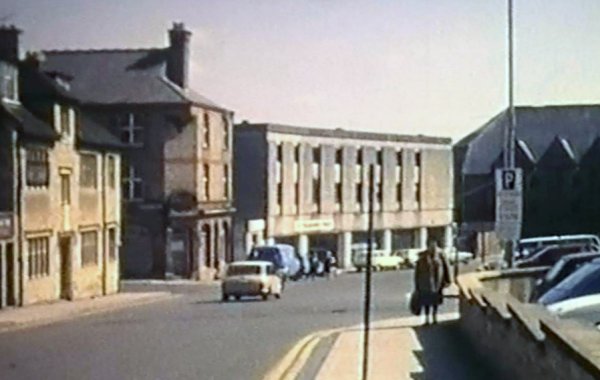
Looking
eastwards
towards the bend
in Vicarage
Street in the
late 1970s. At
extreme left is
the
Albion Inn,
then the
junction of
Vincent Street,
on the opposite
corner was the
building that
had been the
Army & Navy
Stores. The
modern building
at centre had
been Neal &
Williams Ltd
premises which, during
the Second World
War, had been the
venue for the
YWCA Yeovil War
Workers Club.
Next
was the entrance
to the Council's
Town Yard and
finally, at
right, the
Methodist church
- the only
building in
this scene that
remains today.